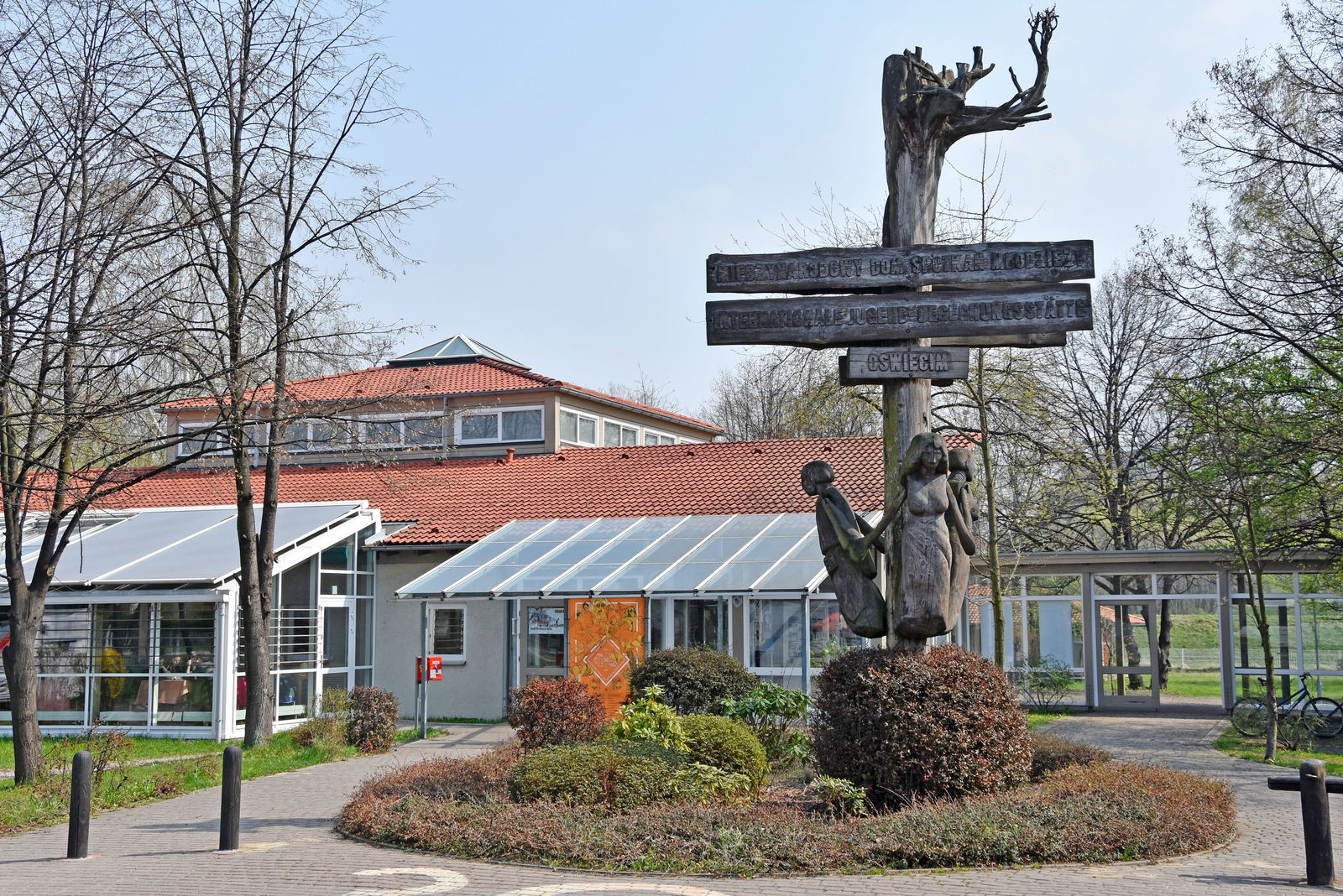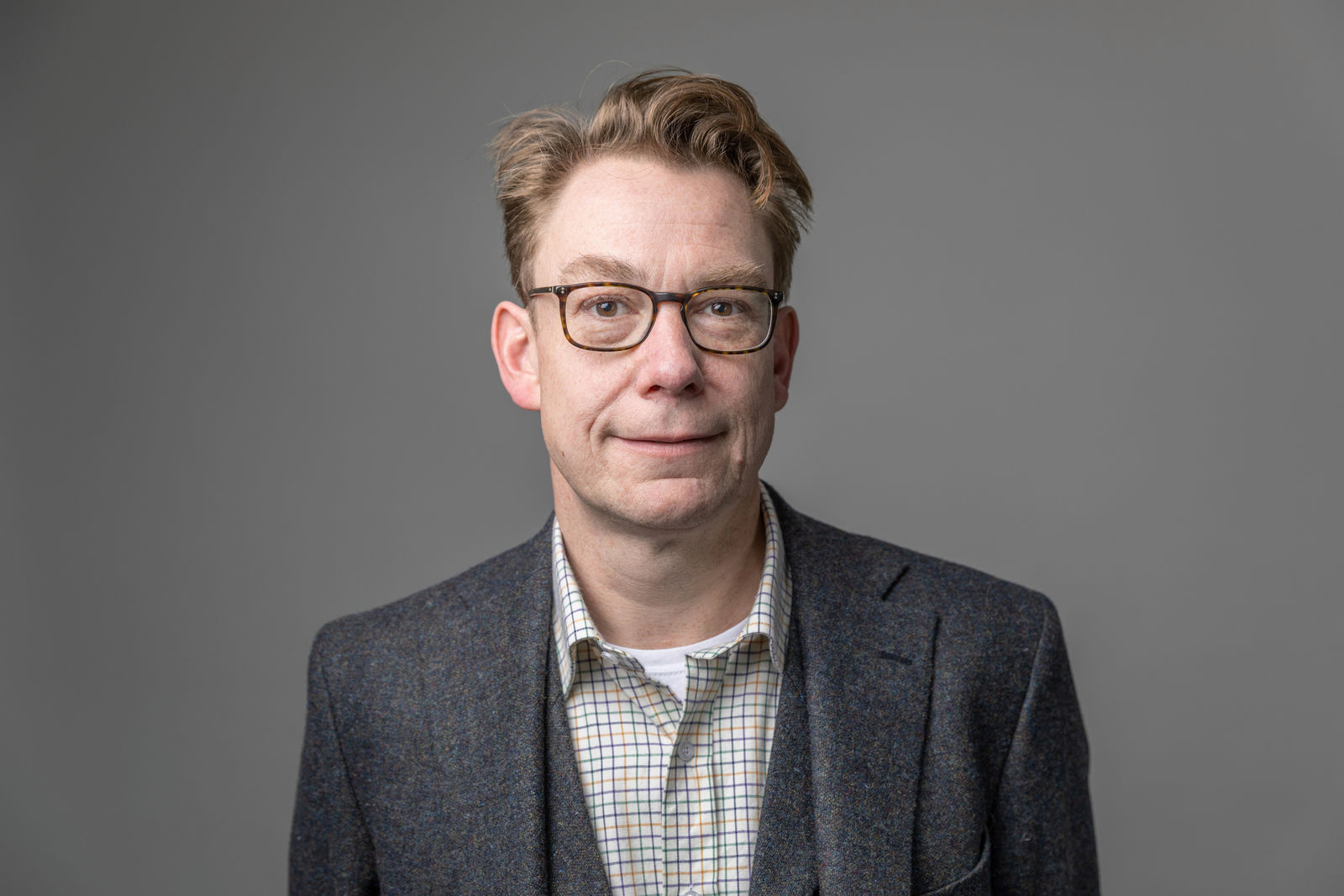35 years of commemorative projects in Auschwitz: an interview with Thymian Bussemer
Head of HR Strategy and Innovation, talking about Auschwitz as a place of remembrance for Volkswagen.
“Keeping the memory of the Holocaust alive” – this has become part of the corporate culture at Volkswagen over the decades. Mr Bussemer, how did this special culture of remembrance evolve?
Volkswagen has always been particularly sensitive when it comes to the past. That was and is due to the history of how the company was founded. Then, the provision of compensation for slave labourers, an example in Germany as a whole, and the commemorative projects in Auschwitz brought something good out of this guilt and established a special kind of culture of remembrance and democracy at Volkswagen.
The International Youth Meeting Centre (IYMC) in Auschwitz (Oświęcim in Polish) has a wonderful history: The eleven states of former West Germany agreed to set up the IYMC in the mid-1980s. One of the states pulled out at the last minute and Volkswagen AG took their place. You could say it turned out to be a stroke of luck.
Apprentices from every location have been meeting up there regularly ever since to help preserve the concentration camp memorials in Auschwitz and Auschwitz-Birkenau as places of remembrance. They experience the history of the Holocaust first-hand, exchange views and usually return home determined that: ‘Nothing like what happened in Auschwitz must ever happen again.’ In this respect, the date on which the IYMC was founded, 8 December 1986, is also a milestone in Volkswagen’s history.
Several years ago, the exchange programme was expanded to include foremen- and forewomen-in-training as well as managers – why?
Why not? It isn’t only up to the younger generation to campaign for democracy, pluralism and against racism. However, as the co-organiser of the management programmes at the time, I have to say that the dedication of our apprentices is the key to the success of the whole project.
Christoph Heubner, the Executive Vice President of the International Auschwitz Committee, has been organising and driving the “Auschwitz – Remembrance and the Future” for many years. Today, on the day on which the International Youth Meeting Centre was founded, he was awarded the Great Cross of Merit of the Order of Merit of the Federal Republic of Germany in Berlin.
And I would like to offer sincere congratulations to Christoph Heubner on behalf of Gunnar Kilian as well! We often spent time with him in Auschwitz and helped the project wherever we could. I will never forget the time many years ago when Gunnar Kilian and I took a donated Multivan to Auschwitz. There was meant to be a big presentation ceremony. Setting off in Wolfsburg the evening before, first we couldn’t find the car, then the number plate, then the export documents, and then the fire extinguisher that is required by law in Poland. We couldn’t find a single one anywhere on the factory premises. But somehow, we made it to Auschwitz and Christoph Heubner gave us a very warm welcome the next morning.
What do the commemorative projects in Auschwitz mean for the culture of remembrance at Volkswagen today and tomorrow?
The direct memory of Auschwitz is fading the fewer survivors there are still around to tell their stories. Which makes it all the more important to safeguard the actual facts, artefacts and traditions, and to keep them alive. The work of our trainees in Auschwitz is essential for this. But Auschwitz isn’t just a specific location, it is also the symbol of the biggest collapse of civilisation in history. To put it another way: Auschwitz is always there in the background in our commitment to the fight against today’s “hate speeches” and “fake news”.
35 years of commemorative projects
The commemorative projects and the youth exchanges in Oświęcim (Auschwitz in English) are a collaboration between the International Auschwitz Committee and the Volkswagen Group, initiated by the group works council.
The International Auschwitz Committee (IAC) was founded by survivors in 1952, to ensure that Auschwitz would never be forgotten. The IAC unites organisations, foundations and Holocaust survivors from 19 countries. The IAC provides information in German, English, French and Polish at www.auschwitz.info.
Over the past 35 years, more than 3,900 Polish and German youths, vocational students from Poland and apprentices from the Volkswagen Group have been involved in the youth exchanges.
The objective of the programme is to raise awareness of Volkswagen’s historical and current responsibility, as a result of its role during the period of National Socialism.
Since 2008, there has also been a management programme, in which more than 450 foremen and forewomen as well as managers have taken part. The agenda includes meeting eyewitnesses and survivors of the Holocaust. The International Auschwitz Committee is on hand to support these meetings and study visits. They are a core element of the culture of remembrance at Volkswagen.

